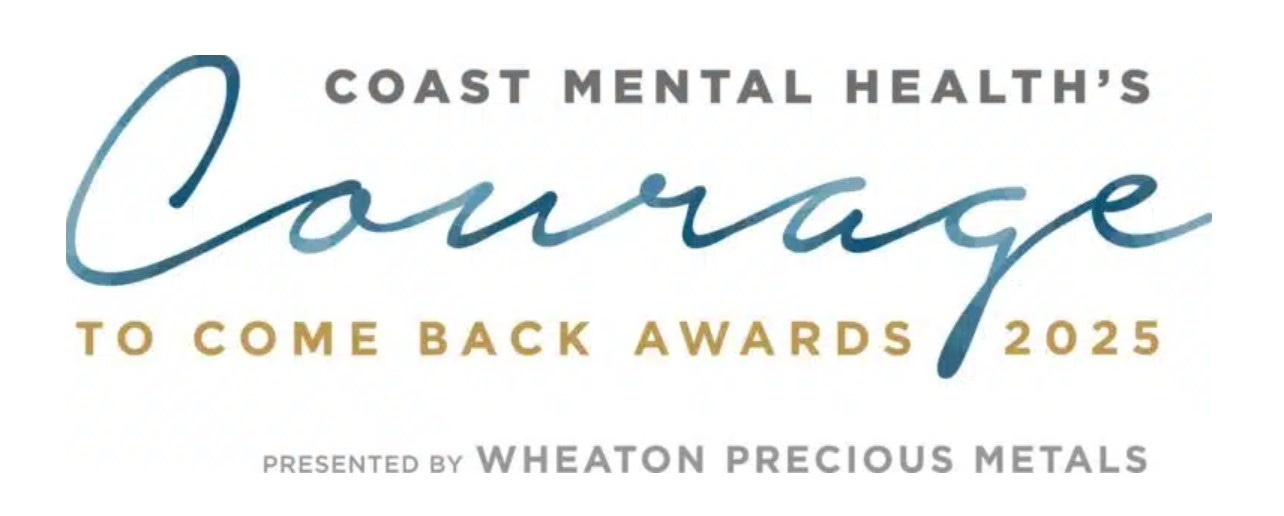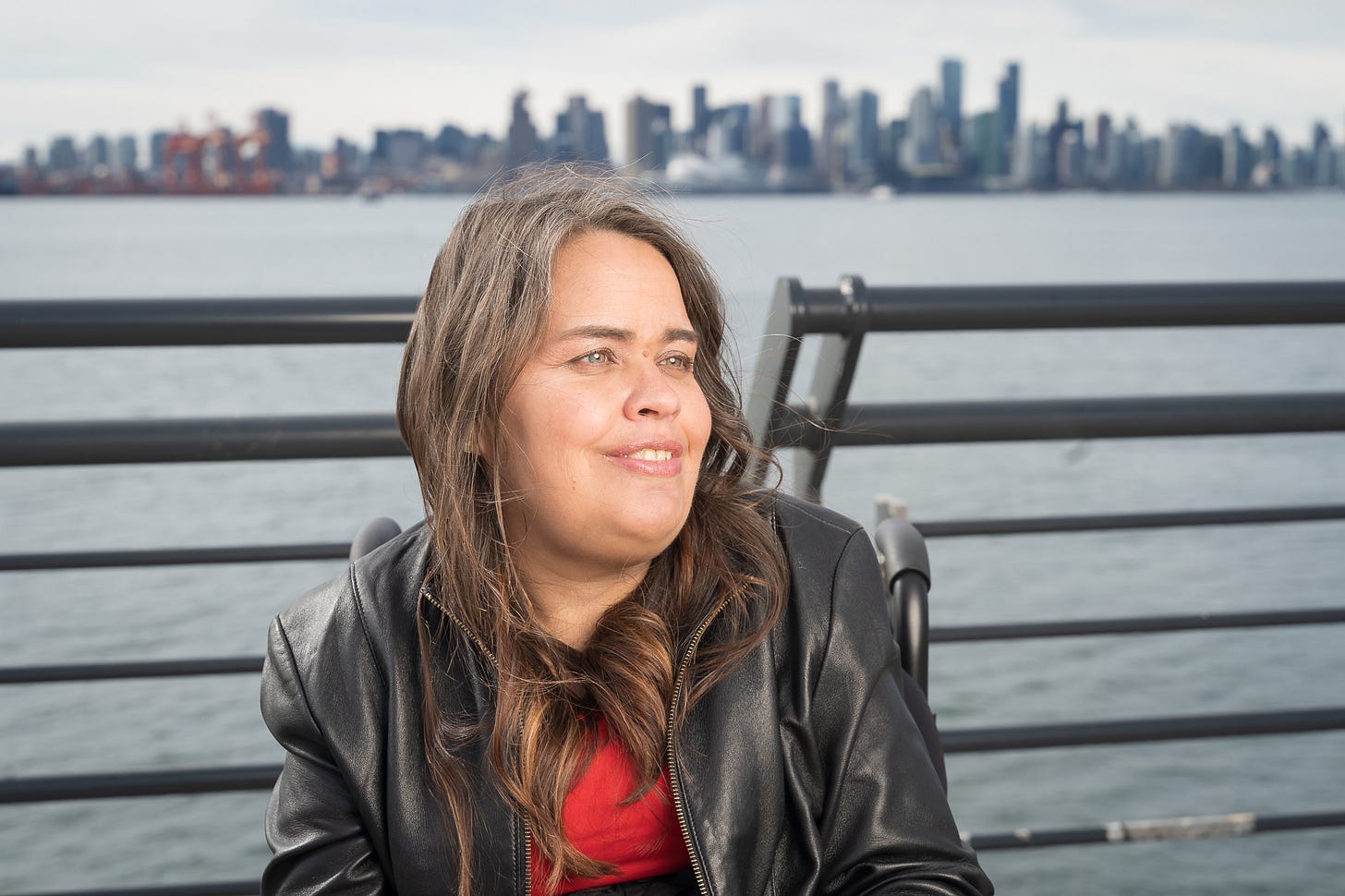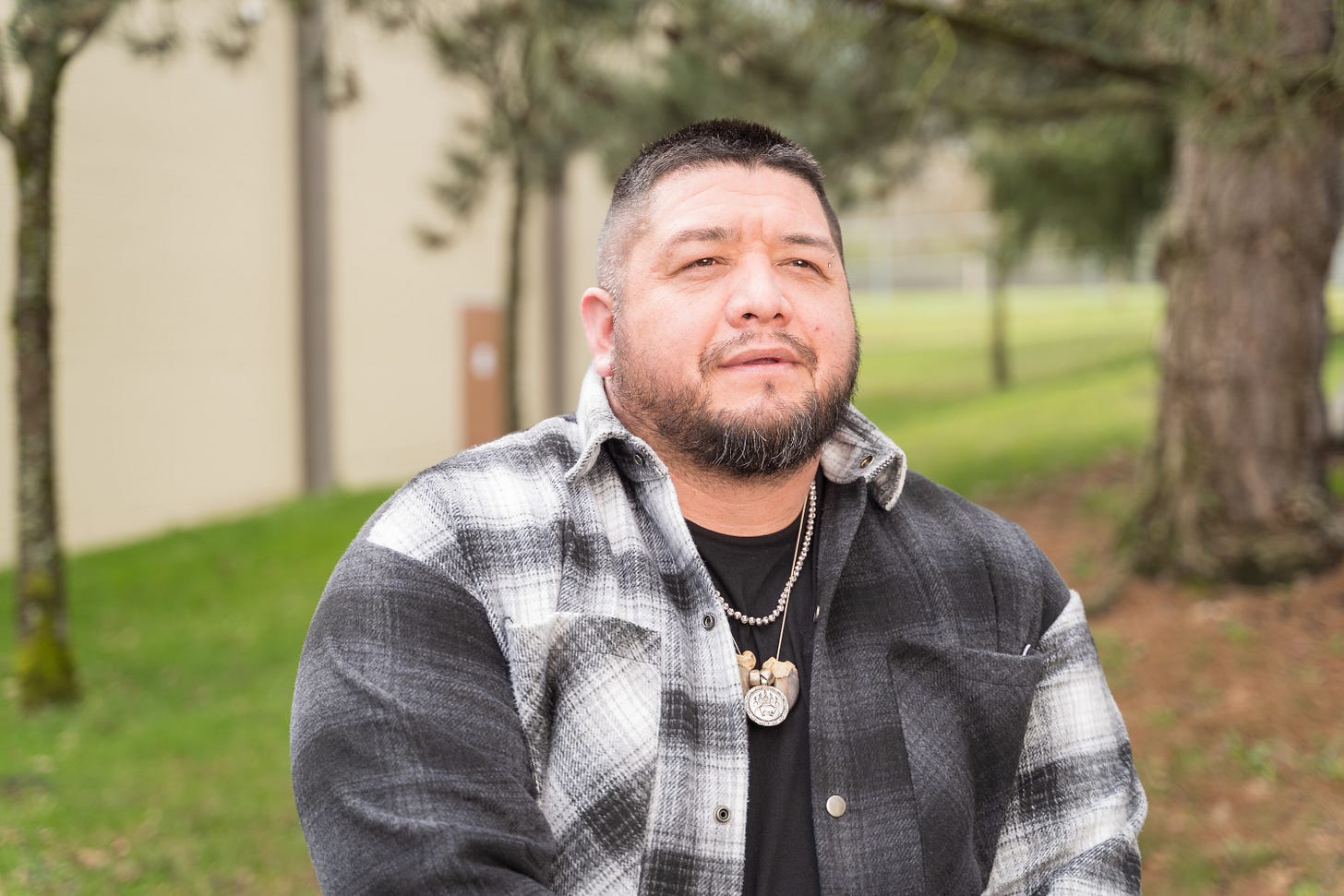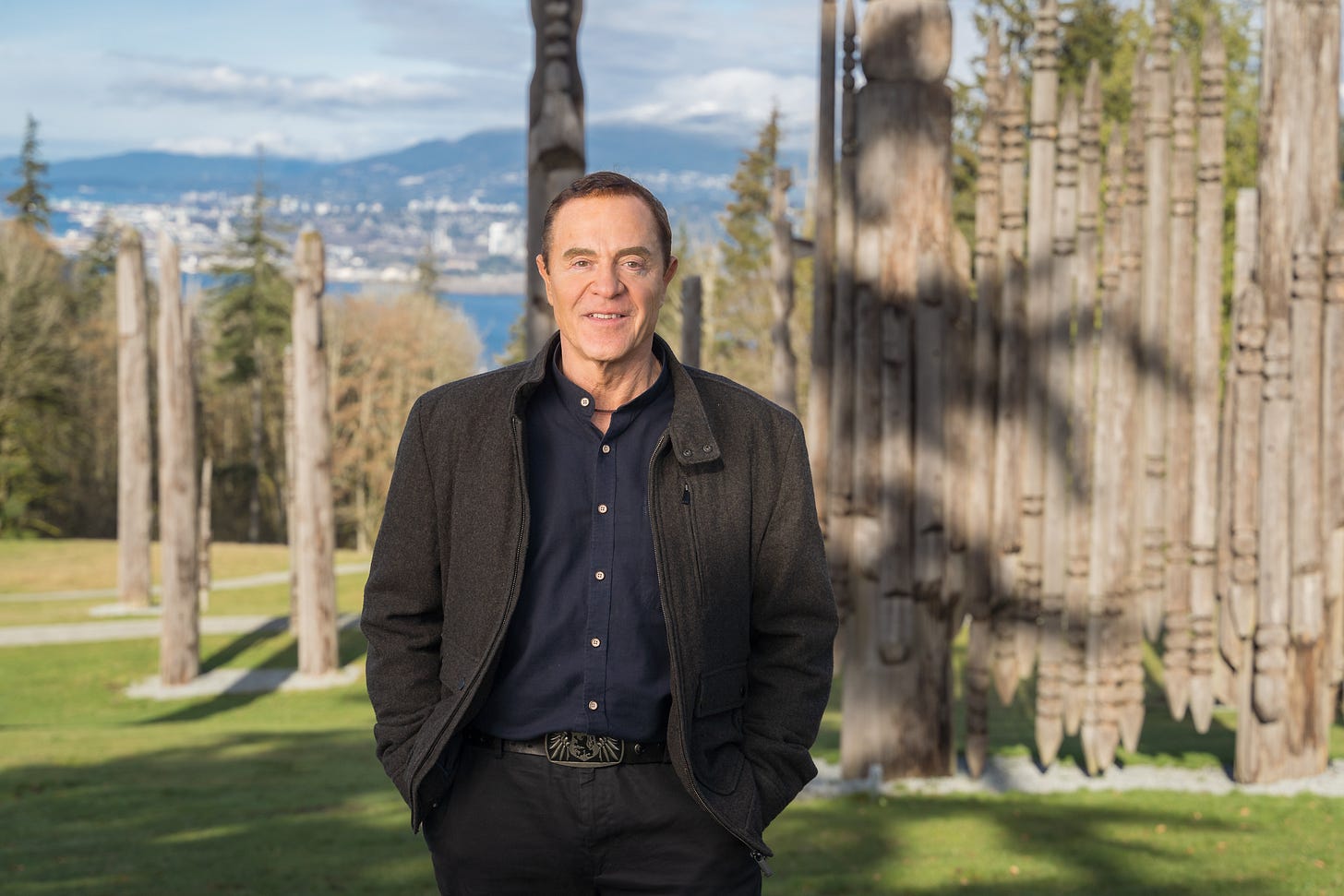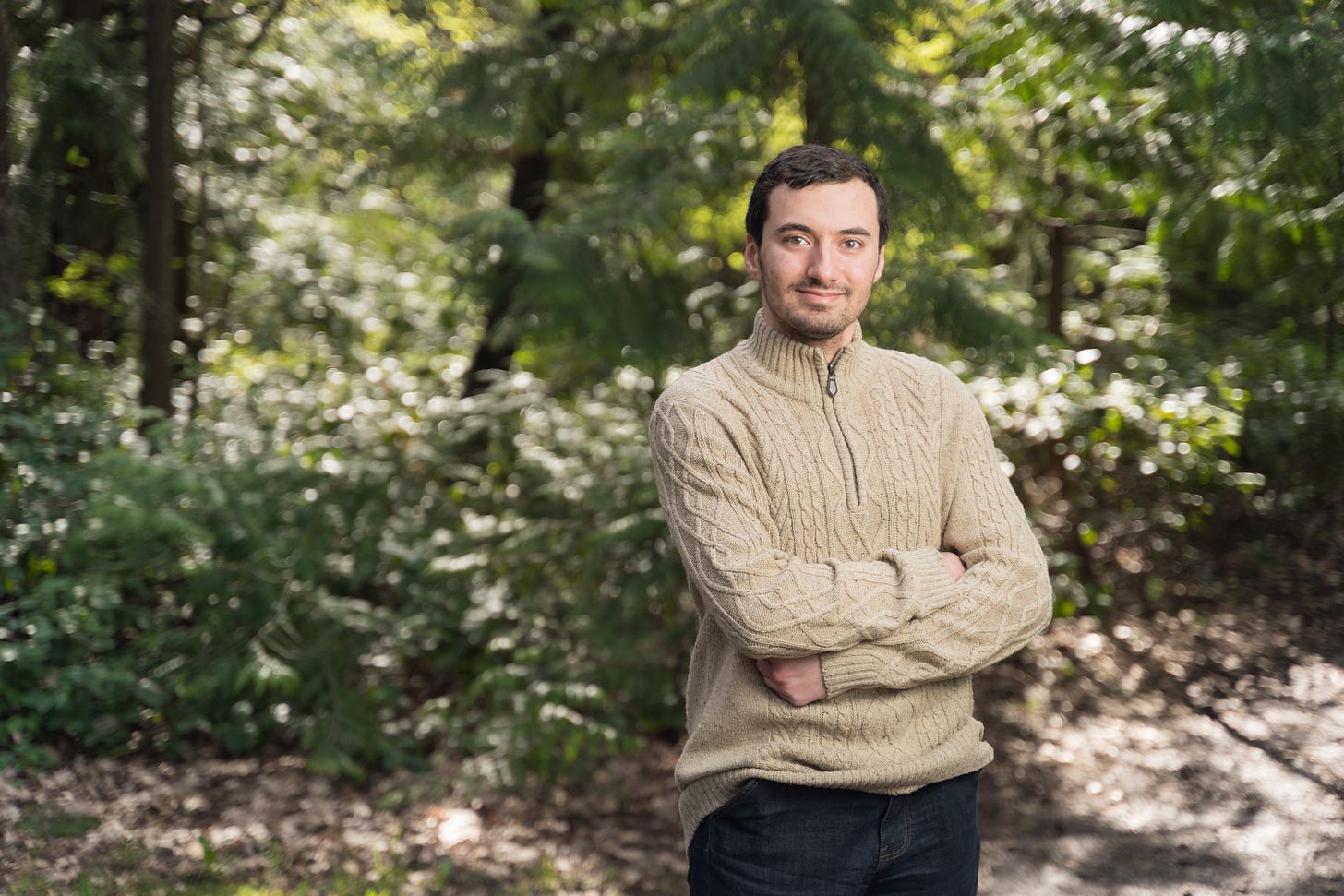Profiles in Courage 2025
A look at the recipients of the Coast Mental Health Courage to Come Back awards
Every year, the Coast Mental Health Courage To Come Back Awards recognize a group of extraordinary British Columbians in four categories: Addiction, Medical, Mental Health, and Young Adult. The awards, usually a sold-out gala at the Vancouver Convention Centre, raise critical funds for the Coast Mental Health Foundation. Writing these profiles and getting to interview these amazing people is an honour and a privilege and some of the most satisfying work I get to do. So, without further ado, here are the recipients for 2025.
Medical award recipient won’t let her disability define her
She is a survivor and an advocate, sharing her story with anyone who will listen. Louisa Bridgman of North Vancouver is the recipient of the Courage To Come Back Award in the Medical category.
She was diagnosed with spastic cerebral palsy at 18 months, presenting a complex set of challenges she continues to deal with to this day.
“It’s a neurological condition that affects my nervous system due to the fact of a lack of oxygen to the brain.”
“I don’t have the use of my legs, so I am wheelchair bound. I’ve had umpteen-dozen surgeries — at 66 and counting at this point, just to maintain the limited mobility that I do have, but I keep trying,” she said.
Bridgman got her first taste of advocacy back in kindergarten, when her elementary school tried to stop her from attending. So, with the help of the United Way, she went public with her story.
“I got them to make a phone call to Tony Parsons and BCTV at the time. I got on the phone with him, and I explained the situation. A few minutes later, a news crew was down there, which caused the school board to overturn their decision and allow me access to school.”
And she has been advocating ever since. Some of her work includes advising the City of North Vancouver on accessibility issues and providing education and outreach through the Rick Hansen Foundation.
She says it’s difficult but necessary work.
“It wasn’t easy, and it’s still not easy now, to be honest,” she said.
Bridgman has been living independently since the age of 20. At 17, she had herself removed from her mother’s care after years of physical, mental, and sexual abuse.
“As well as other abuses that I don’t feel comfortable talking about at this point,” she said.
She tried to take her life 12 different times between the ages of five and 17. One of her ways of coping today is wheelchair boxing.
“I was skeptical at first, but … I really started enjoying it, and it’s reduced my pain by half, and I am no longer on long-term narcotics to control pain.”
Bridgman says she will not be defined by her disability. That’s why she has this message:
“Don’t give up. Keep trying. You might, if you’re not able to go through the front door, you might have to kick down the back door.”
Addiction award recipient went from a life of crime to a life serving others
He went from smoking crack cocaine at age 17 to becoming a full-blown drug addict by his 20s. Stan Price of Surrey is the Courage To Come Back Award recipient in the Addiction category.
Price was born and raised on Vancouver Island. His mother was 16 when he was born, and he admits he didn’t have a lot of stability growing up.
“There was a lot of substance use in the house, and a lot of drinking,” he said. “I didn’t really have a male role model in my life.”
Price was acting out in school and was in and out of foster care. But it was during a visit home that he was introduced to crack.
“I was introduced to crack cocaine at 17 years old. My first time using crack cocaine was with my parents and some of their friends. And it progressed from there.”
Price graduated from several stints in foster care to multiple terms in custody.
“It was kind of a pattern of, you know, like going back to prison, getting released, going back to prison, getting released.”
By his 20s, Price was living in Vancouver and fully engaged in the gang lifestyle. He was drinking heavily and using crack cocaine – not just using but selling too. And then he developed an addiction to heroin. Soon, he would be stealing to feed his habit.
Price did not like the person he was becoming. One more stint behind bars made him realize it was time to change.
“It came to a point where I looked at myself in the mirror, and I was like, ‘Do you really want to do this for the rest of your life?’ I had to make a decision, and that’s not the life that I wanted,” he said. “I said, That’s it. I’m done. I’m out.”
For Price, quitting the criminal lifestyle really was a matter of life and death.
“If I didn’t make the choice I made to leave that, I would definitely, definitely be dead, for sure, 100 per cent I would not be alive.”
Now, he advises others to seek help and support, as he did, to turn their lives around.
“They’re the ones doing the work, [I just] get to be a part of it,” he said.
Through his work at the Phoenix Drug & Alcohol Recovery and Education Society in Surrey, he helps people struggling with mental health and substance abuse, using his personal experience to relate directly with clients.
“Seeing somebody’s success of beating addiction and coming through our programs at Phoenix is worth more than a paycheck to me,” he said. “I cherish every day that I’m here now because I get to live this beautiful life now, and I don’t have to engage in a lifestyle of pain and torment anymore.”
Price’s message is that it’s never too late to change, and if you feel stuck, there is always a way out.
“Anybody who thinks that they’re stuck in that lifestyle, you’re not stuck. It might be what you know in the moment, but it’s never too late to turn that around and make a difference, to make change.”
Mental Health award recipient wants to use AI to help others learn to read
He was a wildly successful tech entrepreneur with a secret — he couldn’t read. David Chalk of Burnaby is the 2025 Courage To Come Back Award recipient in the Mental Health category.
Chalk says he had a happy-go-lucky childhood until his first day of Grade 1.
“The teacher wanted me to come to the front of the class and read, and I froze, and that was really it for the next 12 years. I realized that I could not read, especially in front of the class,” he explained.
That was only the beginning.
Chalk is neurodivergent, specifically diagnosed with acute dyslexia, attention deficit hyperactivity disorder (ADHD), and prosopagnosia – the inability to recognize faces, among other cognitive challenges.
“That had me, unfortunately, suffer through school at the hands of teachers and at the ends of fists and boots of children in the school at times,” he said.
Despite that, Chalk would become a wildly successful tech entrepreneur. Once upon a time, he was practically a household name in B.C., as host of TV programs like Dave Chalk’s Computer Show and Dave Chalk Connected. He even owned a chain of 16 Doppler Computer super stores.
But his illiteracy would catch up with him in a big way later in life. His inability to read a contract nearly ruined him.
“No one really lost money because I was completely insured. It wasn’t that kind of bankruptcy. I just lost everything I had.”
That setback placed him on the path he is on now, developing Artificial Intelligence technology to help others learn to read. During COVID, he confronted his illiteracy once and for all, with the help of a revolutionary new teaching method.
“Four hours into it, I’m just about breaking down in tears because I can feel inside of me something changing. By hour seven, we started to read out loud, and by the 11th hour, I was reading fluidly … and it never changed, and it never went back. I’m a voracious reader now.”
Now, Chalk is developing a form of AI that can help others learn to read.
“Within a year, I hope to have this technology in the marketplace. And I do believe it can not only change Canada, North America, and can change the entire world, because it is a completely different approach.”
Chalk hopes his story can serve as an example to others.
“Fear has killed more dreams than failure ever could. That would be the message,” he said. “The line that my mom taught me was get out of your own way, and you can do anything you want.”
Young Adult award recipient is studying medicine to help others displaced by war
His experiences in the health-care system made him want to advocate for others. Now, he is studying to be a medical doctor. Omar Bseiso of Vancouver is the 2025 Courage To Come Back Award recipient in the Young Adult category.
Bseiso was raised by a single mother, displaced by Saddam Hussein’s invasion of Kuwait and forced to flee to Syria as a refugee.
“In Kuwait, she was a dentist. In Canada, that education was not recognized. She couldn’t find suitable employment for the most part, and we struggled financially,” he said.
“I did experience poverty. I did live in impoverished communities, and that meant basically a lot of the people around me had their own challenges.”
On top of that, Bseiso had medical challenges, including asthma and a congenitally short Achilles tendon that left him in a wheelchair for a time, and even forced him to take a year off from elementary school.
There was also bullying and an attempted sexual assault. But he wasn’t about to let these setbacks stand in his way for long.
“I find that when you experience these things firsthand, you understand that they don’t have to define you, and when you understand that they don’t have to define you, and you can have power over them … they can actually serve as a fuel and a driving force to make a real change and a genuine difference.”
He spent his younger years in and out of the hospital, where he would advocate for fellow patients.
“For instance, as a patient advisor, I was able to use a lot of that pain and trauma as a force for good, as opposed to something that was pushing me down.”
Today, he is at UBC, studying to be a doctor, to be able to continue his advocacy. Bseiso’s dream is to work with Doctors Without Borders, helping those displaced by war, like his mother was, and make a difference for those who don’t have access to proper health care, medical supplies, or support.
Bseiso refuses to be defined by his past experiences.
“You’re defined by who you are on any given day and the choices that you make … and it’s those choices that are going to pave the way for the rest of your life and for your future.”
1130 NewsRadio is a proud sponsor of the 2025 Coast Mental Health Courage To Come Back Awards, which are being handed out Wednesday evening at the Vancouver Convention Centre.

